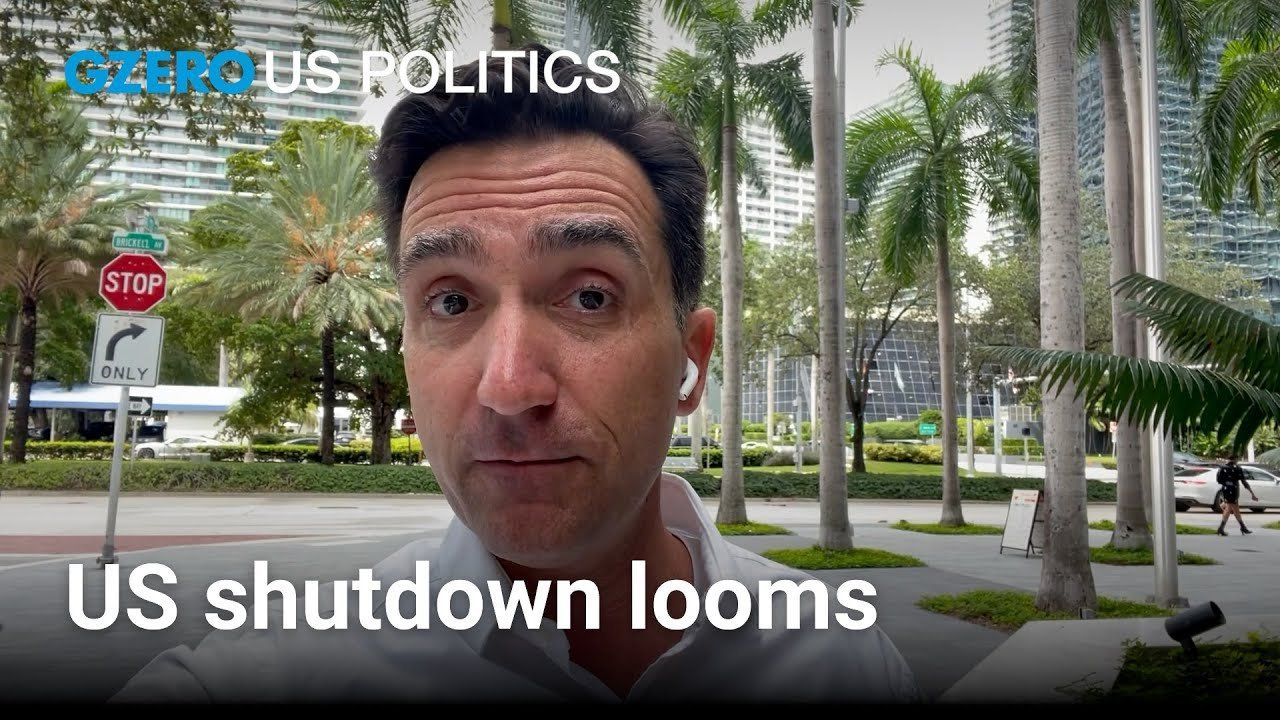
Jon Lieber, head of Eurasia Group's coverage of political and policy developments in Washington, DC shares his perspective on US politics:
How long will a US government shutdown last?
I'm here in Miami, Florida, which feels very far away from the drama happening in Washington, DC this week, where the House and Senate are unlikely to agree on a new government funding bill in time to stop a government shutdown from happening on Saturday night.
This raises a couple of key important questions. One, what are they fighting for? Well, there's a group of conservatives in the House who want to see deep deep spending cuts on appropriated spending. That means defense spending and all non-mandatory spending, like interest payments and Social Security and they're piqued that the government has grown quite a bit since pre-pandemic and they want to see about a 10% cut back to 2022 levels. And they're unlikely to get it because most other members of Congress are in favor of the debt limit deal that was agreed to earlier this year, which would have increased defense spending by about 3% and kept all non-defense discretionary spending flat.
Two, how are they going to get out of this thing? Well, no one's quite no one quite knows. There's some talk about a deal to exchange Ukraine money in order for border funds, some funds to secure the southern border and stop the flow of migrants coming over the border. But it's really unclear at this point whether or not that kind of deal can work out or if it can be worked out quickly given the deep divides between the House and the Senate.
And then three is how long is this thing going to last? And while it could be resolved early next week, some of the pain of the federal government shutdown starts to hit in for constituents, lawmakers. This could also potentially go deep into October. And as it goes deeper into October, the vast majority of members of Congress who want to see the debt limit deal be honored with the 3% increase in defense and 0% increase across the board that I talked about earlier. They may start to feel more pressure to agree to some additional cuts, which means that you could see those cuts be enacted into law as the price of the government reopen. Probably this will be resolved in the next week or so with another deal to extend current levels of funding until November, mid-November. And then we're going to be right back in the soup, having to deal with this all over again later this year.
So lots of drama still to come. Outlook is very uncertain and this could go on for weeks if not much longer than that.
- Will McCarthy stop a government shutdown? ›
- US debt ceiling looms over a House divided ›
- Who will cave on raising US debt ceiling (again?) ›
- Explaining the long history of US debt (& which other countries are saddled with debt) ›
- US debt hits record: Should you worry? ›
- Biden returns to join US debt ceiling talks ›
- The Graphic Truth: Who blew up the US national debt? ›
- Democrats and Republicans unite! At least against China. ›
- Episode 1: What infrastructure spending means for you ›
- Chris Christie weighs in on US debt limit fight ›